JAJSGY7B September 2017 – February 2019 TPS61085A-Q1
PRODUCTION DATA.
6.6 Typical Characteristics
The typical characteristics are measured with the 3.3-µH inductor for high-frequency (part number-7447789003) or 6.8-µH inductor for low frequency (part number-B82464G4) and the rectifier diode with part number SL22.Table 1. Table of Graphs
| FIGURE | |||
|---|---|---|---|
| IOUT(max) | Maximum load current | vs Input voltage at high frequency (1.2 MHz) | Figure 1 |
| vs Input voltage at low frequency (650 kHz) | Figure 2 | ||
| η | Efficiency | vs Load current, VS = 12 V, VIN = 3.3 V | Figure 3 |
| vs Load current, VS = 9 V, VIN = 3.3 V | Figure 4 | ||
| Supply current | vs Supply voltage | Figure 5 | |
| Frequency | vs Load current | Figure 6 | |
| vs Supply voltage | Figure 7 | ||
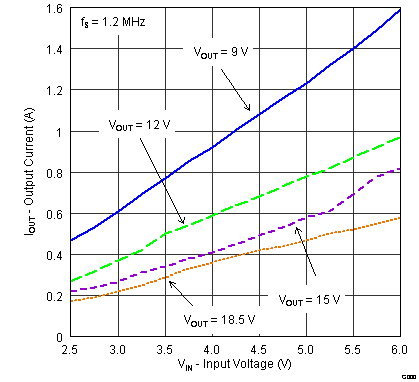 Figure 1. Maximum Load Current vs Input Voltage
Figure 1. Maximum Load Current vs Input Voltage 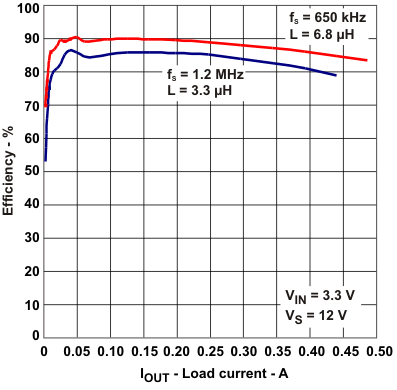 Figure 3. Efficiency vs Load Current, VS = 12 V, VIN = 3.3 V
Figure 3. Efficiency vs Load Current, VS = 12 V, VIN = 3.3 V 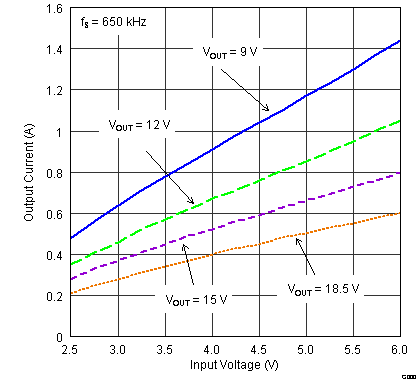 Figure 2. Maximum Load Current vs Input Voltage
Figure 2. Maximum Load Current vs Input Voltage 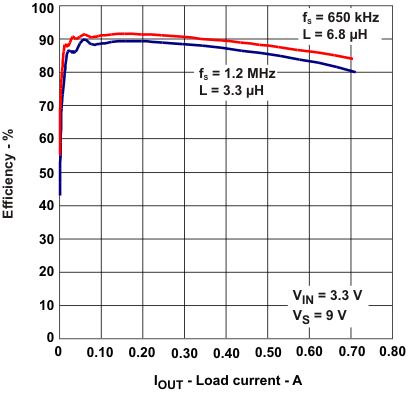 Figure 4. Efficiency vs Load Current, VS = 9 V, VIN = 3.3 V
Figure 4. Efficiency vs Load Current, VS = 9 V, VIN = 3.3 V 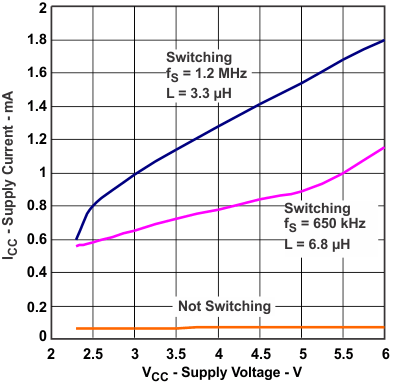 Figure 5. Supply Current vs Supply Voltage
Figure 5. Supply Current vs Supply Voltage 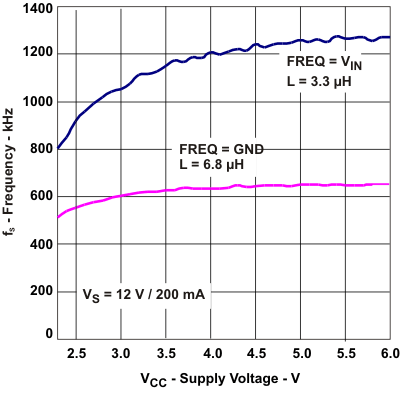 Figure 7. Frequency vs Supply Voltage
Figure 7. Frequency vs Supply Voltage 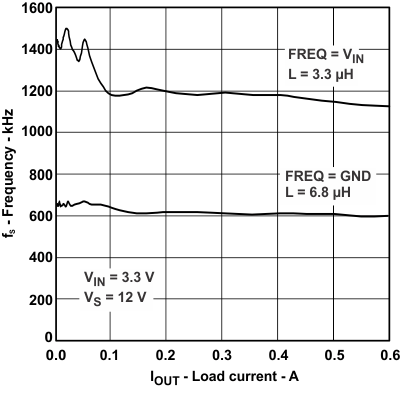 Figure 6. Frequency vs Load Current
Figure 6. Frequency vs Load Current